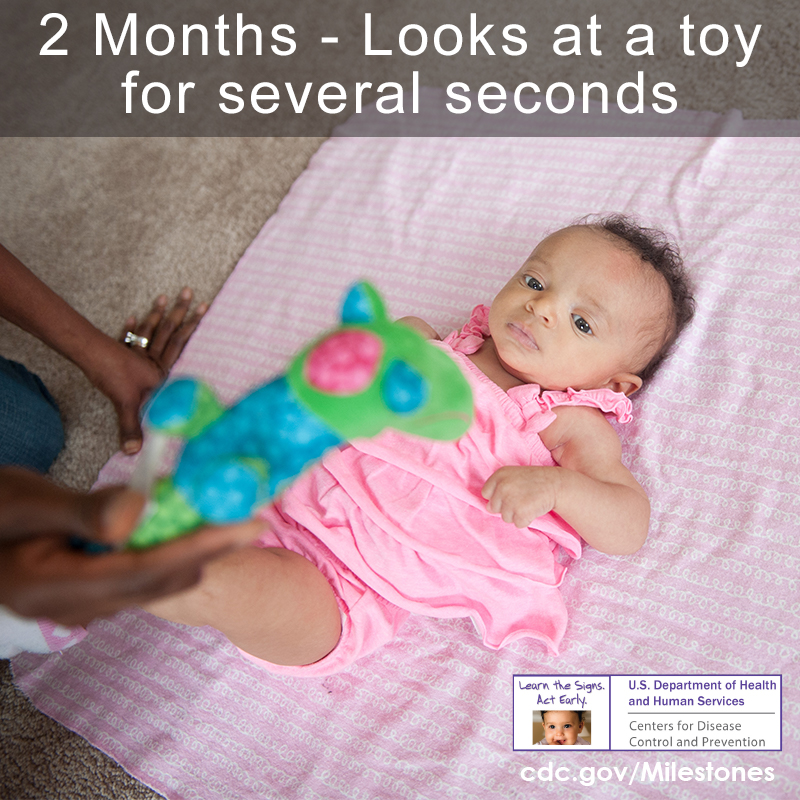What to know
- Learn about the developmental milestones that most babies do by nine months of age.
- See important information to share with your doctor.
- Find tips and activities you can do for your nine month old.

Important Milestones: Your Baby By Nine Months
How your child plays, learns, speaks, acts, and moves offers important clues about your child's development. Developmental milestones are things most children (75% or more) can do by a certain age.
Check the milestones your child has reached by 9 months by completing a checklist with CDC's free Milestone Tracker mobile app, for iOS and Android devices, using the Digital Online Checklist, or by printing the checklist below.
"Learn the Signs. Act Early." materials are not a substitute for standardized, validated developmental screening tools.
What most babies do by this age:
Click the links below to view a photo or video of each milestone.
Social/Emotional Milestones
- Is shy, clingy, or fearful around strangers
- Shows several facial expressions, like happy, sad, angry, and surprised
- Looks when you call her name
- Reacts when you leave (looks, reaches for you, or cries)
- Smiles or laughs when you play peek-a-boo
Language/Communication Milestones
Cognitive Milestones (learning, thinking, problem-solving)
Movement/Physical Development Milestones
Other important things to share with the doctor:
- What are some things you and your baby do together?
- What are some things your baby likes to do?
- Is there anything your baby does or does not do that concerns you?
- Has your baby lost any skills he/she once had?
- Does your baby have any special healthcare needs or was he/she born prematurely?
Tips and Activities
What You Can Do for Your 9 month old

As your baby's first teacher, you can help his or her learning and brain development. Try these simple tips and activities in a safe way. Talk with your baby's doctor and teachers if you have questions or for more ideas on how to help your baby's development.
- Repeat your baby's sounds and say simple words using those sounds. For example, if your baby says "bababa," repeat "bababa," then say "book."
- Place toys on the ground or on a play mat a little out of reach and encourage your baby to crawl, scoot, or roll to get them. Celebrate when she reaches them.
- Teach your baby to wave "bye-bye" or shake his head "no." For example, wave and say "bye-bye" when you are leaving. You can also teach simple baby sign language to help your baby tell you what he wants before he can use words.
- Special acknowledgments to the subject matter experts and others who contributed to the review of data and selection of developmental milestones, especially Paul H. Lipkin, MD, Michelle M. Macias, MD, Julie F. Pajek, PhD, Judith S. Shaw, EdD, MPH, RN, Karnesha Slaughter, MPH, Jane K. Squires, PhD, Toni M. Whitaker, MD, Lisa D. Wiggins, PhD, and Jennifer M. Zubler, MD.
- Sincere gratitude to Natalia Benza, MD and José O. Rodríguez, MD, MBA for their thoughtful review of the Spanish-language translation of these milestones.











